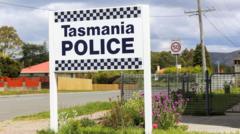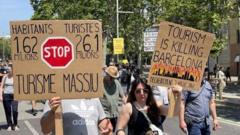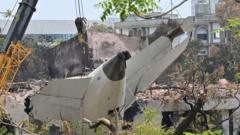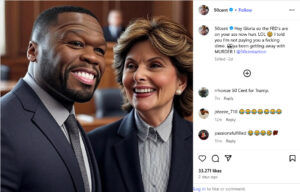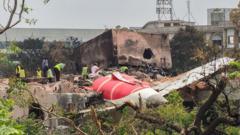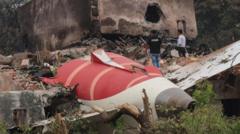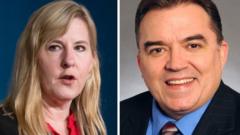The BBC's recent exposé on police violence during tax protests in Nairobi has intensified scrutiny and calls for accountability from human rights organizations, revealing deep divisions in the government response.**
Calls for Accountability Grow Over Kenya's Security Forces Amid Protest Killings**

Calls for Accountability Grow Over Kenya's Security Forces Amid Protest Killings**
Human rights groups demand investigation into police and army actions during deadly protests against tax hikes in Kenya.**
In the wake of a BBC Africa Eye investigation that revealed disturbing details about police violence during protests in Nairobi, human rights organizations have renewed their demand for the Kenyan government to conduct thorough investigations into security force actions. The protests erupted on June 25, 2024, over a controversial finance bill aimed at increasing tax revenue by $2.7 billion, which many Kenyans opposed. The investigation documented the shooting deaths of three protesters, raising public outrage and demands for justice.
Notable organizations like Amnesty International and the Kenya Human Rights Commission (KHRC) argued that the officers implicated in the documentary must be held accountable. The government has defended its security forces, with spokesperson Isaac Mwaura stating that every life is important and labeling the BBC's portrayal as biased. He emphasized the need for a balanced viewpoint on the events, noting the lack of coverage on the vandalism that occurred during the protests.
The fallout from the documentary led to intense discussions in Kenya's parliament, with MP John Kiarie accusing the BBC of promoting a foreign agenda. Conversely, MP Millie Odhiambo called for sober and open dialogue about the protests and urged against media suppression. Despite the government's attempts to manage the narrative, the documentary has stirred anger among the youth and fueled calls for legislative accountability.
The BBC's analysis included a review of over 5,000 images, identifying uniformed personnel who opened fire on unarmed demonstrators. Amnesty International reported wider security force actions during the protests led to at least 65 deaths and numerous injuries. As the government reported a lower toll of 42, the contradictions have only added to public frustration.
In a notable response to regulatory pressure, the BBC canceled a planned screening of the documentary in Nairobi, expressing disappointment at not being able to share their findings directly with the Kenyan public. The film remains accessible on the BBC Africa YouTube channel. Human rights advocates urged citizens to demand a public inquiry, emphasizing accountability for the actions taken during what had been termed the #OccupyParliament protests.
Kenyans have taken to social media to express their disgust over the killings, pushing for justice for the peaceful protesters. President William Ruto has faced scrutiny over police brutality, maintaining a stance of defense for law enforcement actions, while no officers have faced charges thus far.
The Independent Policing Oversight Authority (IPOA) has begun investigations, reporting the complexity of the case, including 233 recorded injuries and ongoing probing into the fatalities linked to police actions. Accusations from the opposition have indicated that the killings were premeditated and sanctioned at high levels, indicating widespread unrest over the events.
As lawmakers and citizens alike grapple with the implications of the documentary and the government's various responses, the call for accountability remains at the forefront of the national dialogue. Some government officials have suggested a ban on the BBC, while others, like senator Edwin Sifuna, praised the need to uncover the truth, regardless of discomfort it may cause among the leadership. The ongoing discourse reflects deep societal rifts and the significant impact of state responses on public trust in governance and law enforcement.
Notable organizations like Amnesty International and the Kenya Human Rights Commission (KHRC) argued that the officers implicated in the documentary must be held accountable. The government has defended its security forces, with spokesperson Isaac Mwaura stating that every life is important and labeling the BBC's portrayal as biased. He emphasized the need for a balanced viewpoint on the events, noting the lack of coverage on the vandalism that occurred during the protests.
The fallout from the documentary led to intense discussions in Kenya's parliament, with MP John Kiarie accusing the BBC of promoting a foreign agenda. Conversely, MP Millie Odhiambo called for sober and open dialogue about the protests and urged against media suppression. Despite the government's attempts to manage the narrative, the documentary has stirred anger among the youth and fueled calls for legislative accountability.
The BBC's analysis included a review of over 5,000 images, identifying uniformed personnel who opened fire on unarmed demonstrators. Amnesty International reported wider security force actions during the protests led to at least 65 deaths and numerous injuries. As the government reported a lower toll of 42, the contradictions have only added to public frustration.
In a notable response to regulatory pressure, the BBC canceled a planned screening of the documentary in Nairobi, expressing disappointment at not being able to share their findings directly with the Kenyan public. The film remains accessible on the BBC Africa YouTube channel. Human rights advocates urged citizens to demand a public inquiry, emphasizing accountability for the actions taken during what had been termed the #OccupyParliament protests.
Kenyans have taken to social media to express their disgust over the killings, pushing for justice for the peaceful protesters. President William Ruto has faced scrutiny over police brutality, maintaining a stance of defense for law enforcement actions, while no officers have faced charges thus far.
The Independent Policing Oversight Authority (IPOA) has begun investigations, reporting the complexity of the case, including 233 recorded injuries and ongoing probing into the fatalities linked to police actions. Accusations from the opposition have indicated that the killings were premeditated and sanctioned at high levels, indicating widespread unrest over the events.
As lawmakers and citizens alike grapple with the implications of the documentary and the government's various responses, the call for accountability remains at the forefront of the national dialogue. Some government officials have suggested a ban on the BBC, while others, like senator Edwin Sifuna, praised the need to uncover the truth, regardless of discomfort it may cause among the leadership. The ongoing discourse reflects deep societal rifts and the significant impact of state responses on public trust in governance and law enforcement.


